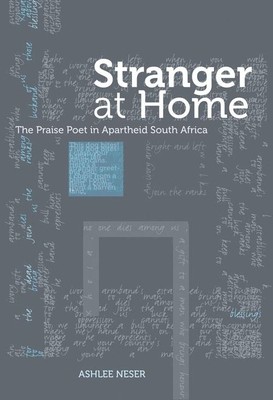
- We will send in 10–14 business days.
- Author: Ashlee Neser
- Publisher: Wits University Press
- Year: 2011
- Pages: 280
- ISBN-10: 1868145379
- ISBN-13: 9781868145379
- Format: 15 x 21.8 x 1.5 cm, minkšti viršeliai
- Language: English
- SAVE -10% with code: EXTRA
Reviews
Description
This book is about the poetry, vision and deeply inhospitable context of one of South Africas most talented praise poets.
The praise poet (imbongi) is a familiar cultural icon in contemporary South Africa. Public events as diverse as presidential inaugurations, openings of parliament, fashion shows and boxing contests begin with the rousing declamations of charismatic iimbongi. Yet until the institution of majority-rule, praise poets who sought to shock their audiences with dangerous truths could claim none of the prestige enjoyed by their present-day counterparts. Under apartheid, many praise poets either ceased to perform or abandoned the imbongi's duty to diagnose and criticize political and social ills. There was, however, one brilliant Xhosa imbongi called David Manisi, a poet widely acclaimed in his youth as the successor to the great SEK Mqhayi, who refused to capitulate to the ease of silence or complicity. As documented by Jeff Opland in The Dassie and the Hunter (UKZN Press), Manisi worked tirelessly and in embattled contexts to address his audiences with demands, criticisms and aspirations they frequently misunderstood. The author of five volumes of Xhosa poetry and performer of inspired and elegantly crafted izibongo (praise poems), Manisi saw himself as a man of multiple places, allegiances and identities at a time when these markers of self were rigidly policed. Manisi's entrance on the local Transkeian poetry scene was legendary. He was for a time the most famous poet in Kaiser Mathanzima's court. He also wrote the first published poem about Nelson Mandela in 1954, hailing him prophetically as 'Gleaming Road'. Despite these early accomplishments, Manisi ended his career as a lonely performer in American and South African universities. He never met Mandela, his hero of old.Ashlee Neser examines Manisi as an inventive negotiator of rural and urban spaces, modernity and tradition, performance and publication, the local and the foreign.
EXTRA 10 % discount with code: EXTRA
The promotion ends in 22d.15:42:22
The discount code is valid when purchasing from 10 €. Discounts do not stack.
- Author: Ashlee Neser
- Publisher: Wits University Press
- Year: 2011
- Pages: 280
- ISBN-10: 1868145379
- ISBN-13: 9781868145379
- Format: 15 x 21.8 x 1.5 cm, minkšti viršeliai
- Language: English English
This book is about the poetry, vision and deeply inhospitable context of one of South Africas most talented praise poets.
The praise poet (imbongi) is a familiar cultural icon in contemporary South Africa. Public events as diverse as presidential inaugurations, openings of parliament, fashion shows and boxing contests begin with the rousing declamations of charismatic iimbongi. Yet until the institution of majority-rule, praise poets who sought to shock their audiences with dangerous truths could claim none of the prestige enjoyed by their present-day counterparts. Under apartheid, many praise poets either ceased to perform or abandoned the imbongi's duty to diagnose and criticize political and social ills. There was, however, one brilliant Xhosa imbongi called David Manisi, a poet widely acclaimed in his youth as the successor to the great SEK Mqhayi, who refused to capitulate to the ease of silence or complicity. As documented by Jeff Opland in The Dassie and the Hunter (UKZN Press), Manisi worked tirelessly and in embattled contexts to address his audiences with demands, criticisms and aspirations they frequently misunderstood. The author of five volumes of Xhosa poetry and performer of inspired and elegantly crafted izibongo (praise poems), Manisi saw himself as a man of multiple places, allegiances and identities at a time when these markers of self were rigidly policed. Manisi's entrance on the local Transkeian poetry scene was legendary. He was for a time the most famous poet in Kaiser Mathanzima's court. He also wrote the first published poem about Nelson Mandela in 1954, hailing him prophetically as 'Gleaming Road'. Despite these early accomplishments, Manisi ended his career as a lonely performer in American and South African universities. He never met Mandela, his hero of old.Ashlee Neser examines Manisi as an inventive negotiator of rural and urban spaces, modernity and tradition, performance and publication, the local and the foreign.


Reviews